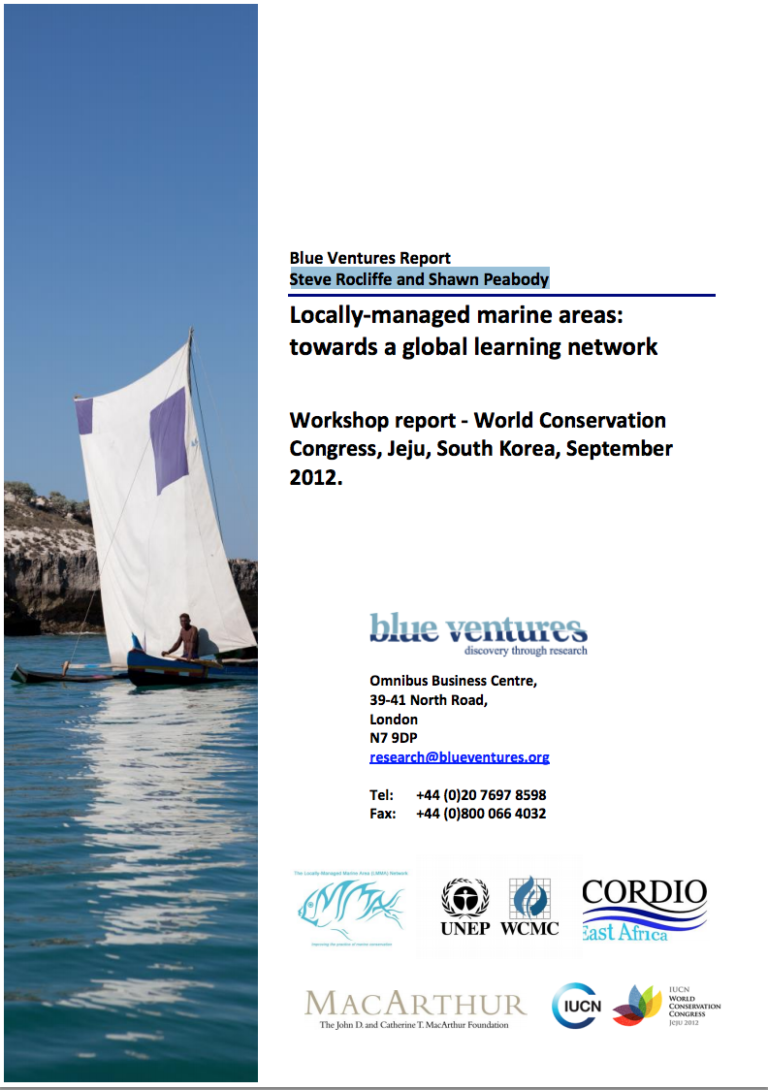Throughout the tropics and subtropics, coastal communities are increasingly assuming responsibility for nearshore resources under arrangements known as “locally managed marine areas” or LMMAs. Broadly similar to marine protected areas (MPAs), LMMAs are managed for sustainable, long term use rather than biodiversity conservation itself, but typically employ a range of management techniques, including periodic closures, gear restrictions, species-specific reserves and permanently closed, fully protected areas to achieve this aim.
These locally centred approaches have emerged as an effective solution to many of the challenges of small-scale management commonly faced by fishing communities in developing countries. LMMAs have proven to be a costeffective, scaleable, resilient and more socially acceptable alternative to more traditional ‘top down’ methods of marine resource management. They have also shown promise as a means to safeguard food security, address coastal poverty, and help coastal communities to adapt to climate change.
In the Asia-Pacific region, the LMMA Network has proven effective at facilitating information sharing and peer-topeer learning amongst coastal communities, whereas LMMAs in other locations such as east Africa have tended to operate in relative isolation, with little communication or coordination between support organisations or implementing communities. Inspired by the success of the Pacific network, UK-based marine conservation NGO Blue Ventures (BV) has begun working with NGO partners and community representatives to develop similar “learning networks” for Madagascar and the broader Western Indian Ocean (WIO), and to connect these national and regional initiatives to those in other regions worldwide.
As part of this effort, the first global LMMA workshop was held on 10th September 2012 at the IUCN World Conservation Congress in Jeju, South Korea. The meeting, the broadest gathering to-date of LMMA managers, brought together 17 community leaders from LMMAs in the South Pacific, western and central Indian Ocean, Caribbean and Central America. The Locally Managed Marine Areas: Towards A Global Learning Network workshop explored best practices, lessons learned and common challenges in LMMA management and laid the foundations for a global network aimed at facilitating the sharing of timely and relevant information to improve LMMA management. The workshop, which was hosted by BV in association with the Pacific LMMA network and the marine research not-for-profit CORDIO, was also attended by 25 representatives from the wider conservation community.
This report compiles recommendations and insights arising from this workshop and two related satellite events. Both the workshop and the satellite events were kindly supported by the John D. and Catherine T. MacArthur Foundation.












